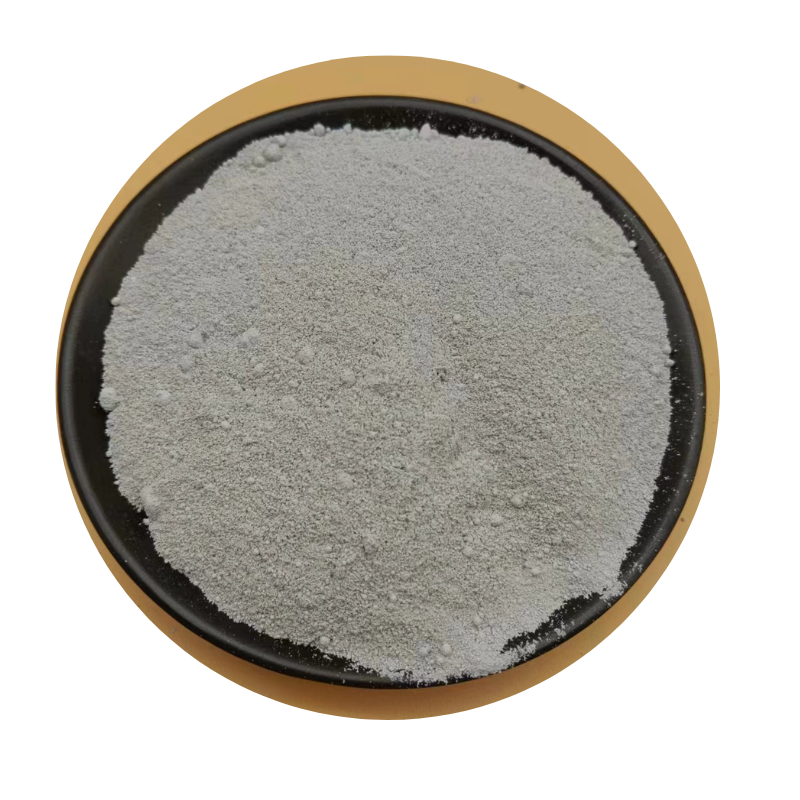
Diatomite Stone Production Companies and Their Innovative Manufacturing Techniques
The Rise of Diatomite Stone Manufacturers A Sustainable Future
Diatomite, a naturally occurring sedimentary rock made from the fossilized remains of diatoms, has gained significant traction in recent years due to its unique properties and myriad applications. Characterized by its light weight, high porosity, and excellent thermal insulating properties, diatomite plays a vital role in various industries, including construction, agriculture, and filtration. As demand for sustainable and eco-friendly materials rises globally, the role of diatomite stone manufacturers is becoming increasingly crucial.
Understanding Diatomite
Diatomite, also known as diatomaceous earth, is formed when diatoms, microscopic algae with silica-rich cell walls, accumulate in riverbeds, lakes, or oceans. Over millennia, this accumulation compacts into diatomaceous earth. The raw material, which is primarily composed of silicon dioxide, is harvested, processed, and transformed into diatomite stone. The stone's unique structure gives it characteristics such as lightweight, high absorbency, and durability, making it ideal for various applications.
Applications of Diatomite
The versatility of diatomite has sparked interest across several industries
1. Construction Industry Diatomite stone is utilized in the production of lightweight concrete, insulative plaster, and roofing materials. Its thermal properties enhance energy efficiency, promoting sustainable building practices.
2. Filtration Its porous nature makes diatomite an excellent filter medium for water purification and chemical processing. The food and beverage industry also uses it to clarify and filter beverages like beer and wine, helping manufacturers meet stringent quality standards.
3. Agriculture Diatomite is used as a natural pesticide and soil conditioner. Its ability to improve soil structure and moisture retention has made it popular among organic farmers looking to enhance crop yields sustainably.
4. Absorbent Material The high absorbency of diatomite makes it an ideal candidate for industrial absorbents, such as those used in oil spills or other hazardous spills, helping to minimize environmental damage.
5. Cosmetics and Personal Care Due to its exfoliating properties, diatomite is increasingly found in skincare products and toothpaste, providing a natural alternative to synthetic microbeads.
diatomite stone manufacturers

The Growth of Diatomite Stone Manufacturers
The global shift towards environmentally friendly products has bolstered the growth of diatomite stone manufacturers. According to market research, the diatomaceous earth market is projected to grow significantly in the coming years. Manufacturers are focusing on sustainable extraction methods and are increasingly utilizing renewable energy sources in their production processes.
Innovation is at the forefront of this growth. Manufacturers are investing in research and development to enhance the quality of diatomite products, creating variants with improved performance for specific applications. The introduction of new processing technologies helps reduce energy consumption and waste generation, contributing to a more sustainable production cycle.
Challenges and Opportunities
Despite the positive outlook, diatomite stone manufacturers face challenges. The mining process must be conducted sustainably to minimize environmental impact. Concerns regarding habitat disruption and resource depletion necessitate that manufacturers adopt responsible mining practices. Regulatory compliance and the increasing scrutiny of environmental practices will shape the future of the industry.
However, these challenges also present opportunities for innovation. Manufacturers can differentiate themselves by emphasizing sustainability and transparency in their operations. By adopting eco-friendly practices and engaging with local communities, they can build a positive brand image that resonates with environmentally conscious consumers.
Looking Ahead
The future of diatomite stone manufacturers appears promising. As global demands for sustainable materials rise, diatomite’s diverse applications will only continue to expand. Collaboration between manufacturers, researchers, and policymakers will be key to ensuring the responsible development of this valuable resource.
Investors and entrepreneurs interested in entering the diatomite market will find numerous opportunities, particularly in developing regions where sustainable practices can make a significant impact. The emphasis on sustainable building materials and processes will drive innovation within the sector and encourage a broader acceptance of diatomite across various industries.
In conclusion, diatomite stone manufacturers are positioned at the intersection of sustainability and innovation. By leveraging the unique properties of diatomaceous earth while adhering to eco-friendly practices, they contribute to a more sustainable future for industries worldwide. In a world increasingly focused on reducing environmental impact, the growth and innovation of diatomite stone manufacturing may very well pave the way for a greener tomorrow.
Share
-
Premium Pigment Supplier Custom Solutions & Bulk OrdersNewsMay.30,2025
-
Top China Slag Fly Ash Manufacturer OEM Factory SolutionsNewsMay.30,2025
-
Natural Lava Rock & Pumice for Landscaping Durable Volcanic SolutionsNewsMay.30,2025
-
Custom Micro Silica Fume Powder Manufacturers High-Purity SolutionsNewsMay.29,2025
-
Custom Mica Powder Pigment Manufacturers Vibrant Colors & Bulk OrdersNewsMay.29,2025
-
Custom Micro Silica Fume Powder Manufacturers Premium QualityNewsMay.29,2025






